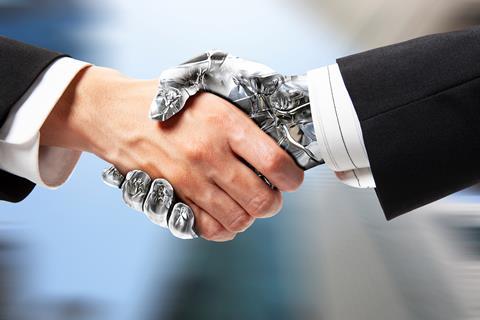A bleak vision of a legal profession largely replaced by artificial intelligence and self-service legal advice is set out in a vision for the coming decade published by a Law Society-sponsored initiative. The report, based on projections by a 'Delphi panel' of experts, forecasts a 'savage reduction' in full-time jobs by 2050. Those human lawyers who remain will work alongside technology - and be required to take 'performance-enhancing medication in order to optimise their own productivity and effectiveness'.
On a more immediate timescale, the years between 2023 and 2030 will see the end of the partnership model, the 'deskilling of the legal profession as AI takes over' and compensation in the profession dropping 'dramatically'. By 2030 'everyone has a "free" lawyer at their disposal, similar to Siri'.
The report, Images of the Future Worlds Facing the Legal Profession 2020-2030, is the first fruit of the Society's Future Worlds 2050 project. The project aims to enable 'raw, frank and honest discussions around what clients will need in the future and to think about the legal business models our members may adopt', the Society said.

Among the forecasts is a prediction that employment in the UK legal sector is already declining, following a peak in 2016. However the report also cites research suggesting that '85% of job concepts in 2030 do not yet exist, and 50% of people think that the roles and skills of the next 10-15 years are impossible to predict within their industry'.
Apart from advances in technology, the panel takes into account predictions about the dominance of China in the world economy, climate change and 'rising social movements and resurgence of the civil rights movement'.
Law Society president I. Stephanie Boyce said: 'The legal profession is at a pivotal moment, as is the world in which we live. There are a plethora of forces shifting our collective experience and the business environment. If we’ve learnt anything from 2020, it’s that the future can still catch you unawares.'
She noted that emerging disruptions and uncertainties may increase demand for legal services. 'New forms of green energy and climate change action could create opportunities for lawyers and their insurer clients, as they seek to find innovative solutions to the risks posed by extreme weather events,' she said. 'Legal input and advice will also be needed around ‘green funding’ – investors financing environmentally friendly companies – and there is likely to be a rise of climate litigation against corporations or governments.'
A section on the role of the Law Society in times of change states that 'Our ambition is to be the engine room driving strategic insight and influence and to improve our reputation for helping members tackle uncertainty and change.'
This article is now closed for comment.



























65 Readers' comments